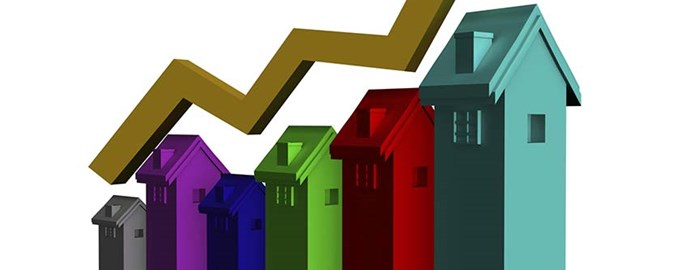
Switzerland's House Prices are soaring
In April 2017 the New York Times reported that the majority of aspiring house buyers found Swiss housing prices were out of reach. Worse, a month before Credit Suisse described home-ownership in Swiss urban centres as a "fata morgana", a mirage for most buyers on average earnings. And this is despite very low interest rates and high employment. Buying cheap Swiss apartments is unheard of, even if prices around Bern and Geneva have stabilized of late.
By the beginning of August last year Bloomberg had warned that UBS believed that the Swiss property market remained at risk of a housing bubble. The USB Group's quarterly index then showed investment demand for residential real estate had remained high in the period to June 2017, but "a dampening effect was created by the relatively moderate growth in outstanding household mortgages against the backdrop of slightly brighter economic conditions,” UBS said.
By the end of the month it was certain that Zurich would remain the dearest location for Swiss property at CHF12,250 ($13000) per square metre. Due to continued exceptionally strong rental apartment construction the net increase altogether remains at a very high level with an estimated 47,500 residential units, UBS stated.
And this was born out by the Credit Suisse reports on 2017 as a whole. Tenants are still looking for a new home but in fewer numbers due to the high number of new developments - but rental yields are still high. With few alternatives on the horizon for investors, it is easy to see where the bubble effect is likely to occur: the lower end of the rental market, where too much new housing stock could cause a price crash. The search for tenants would then be far more difficult, too, for the wider spectrum of the rental market.
Credit Suisse warned that after a 14-year run of price growth in the residential real estate sector the end is nigh. Homeowner ship has for many remained a dream, but not it is an unobtainable one due to high prices.
" The low mortgage interest rates are in this sense merely an optical illusion for many households. Demand in the current year will therefore continue to concentrate more on regions with prices that are still affordable as well as the low and mid-priced segments. While we expect a continued rise in prices in these regions, prices in the high-price regions and the high-price segment in general are expected to fall further – although at a lower speed. Altogether we expect a downturn in 2017 not exceeding 0.5%," Credit Suisse said in their mid-year report.
This assessment is still valid for 2018's outlook. No immediate risk of a boom and bust situation then, but caution is indicated, whether you manage to find a converted historic Swiss home in Bern's Old Town, a UNESCO World Heritage Site, or a modern apartment in Basel on the Rhine or Winterthur. Making a loss or profit on rentals or capital gains will depend very much on the type of property purchased and the location.
Swiss ski chalets in the Valais or farmhouses in the lush vineyards overlooking Lake Neuch�tel at the Swiss Riviera are also as popular as ever with investors, so not likely to go down in price any time soon. Nor will property prices in Luzern, one of Europe's most scenic cities, collapse over night. The Italian-speaking Ticino region with lakes Lugano and Maggiore is still one of the most sought-after retirement destinations for those with larger budgets, thanks to the mild climate the Ticino enjoys. However, with a large segment of the population priced out of the market it is likely that something will have to give sooner or later, and Government intervention in the form of incentives to developers may well flood the market with cheaper Swiss apartments.

